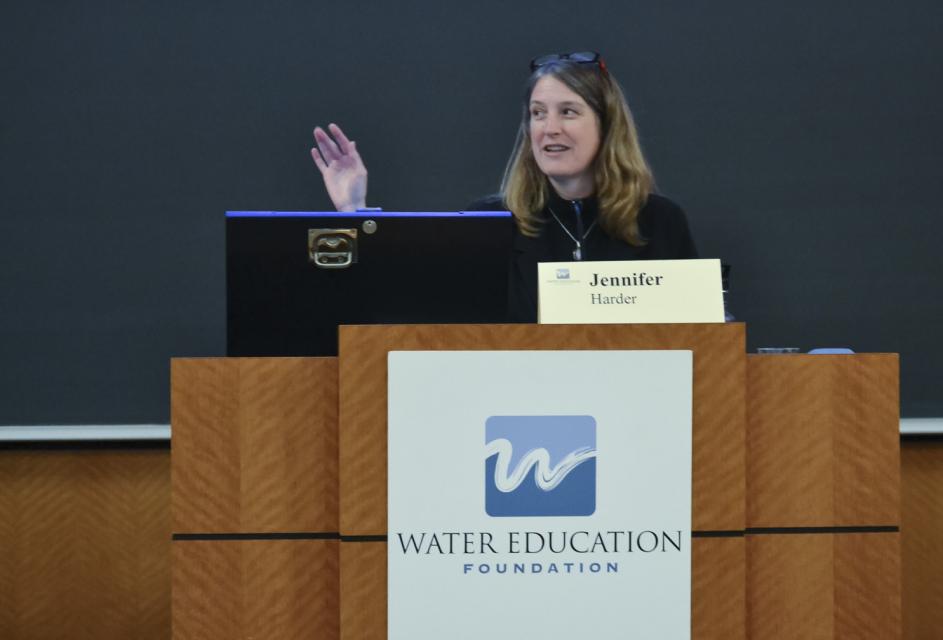California’s Complicated Water Rights System Explained at Feb. 7 Water 101 Workshop
Hop on the bus for the optional one-day groundwater tour the next day
The State Water Resources Control Board’s recently approved plan to increase flows through the San Joaquin River and its tributaries to help improve conditions for fish in the Bay-Delta estuary sparked passionate arguments over who holds the rights to California’s waters — and whose rights are senior to others.
So what’s the difference between a senior water right and a junior water right? Or a riparian right and an appropriative right? How are they determined? And how does the concept of public trust come into play?
Those questions and more will be explained in easy-to-understand terms by Jennifer Harder, a law professor at McGeorge School of Law during our Water 101 Workshop on Feb. 7 in Sacramento.
Participants at last year’s workshop lauded Ms. Harder’s presentation.
“Professor Harder’s presentation — highlight of the day!”
“I felt like so awake and engaged with her talk. It went really fast and I rushed to keep notes but she was amazing.”
Water rights is just one of the topics covered during the one-day workshop at McGeorge School of Law. Other topics include:
- California’s water geography, history and hydrology
- Groundwater and the state’s Sustainable Groundwater Management Act
- Current issues in California water management
- Navigating the state Legislative process
See the full agenda here.
Following the workshop, network and socialize with fellow attendees and speakers at a reception sponsored by Kronick Moskovitz Tiedemann & Girard.
Join us the next day, Feb. 8, for the optional one-day groundwater tour, led by Foundation staff and groundwater experts Thomas Harter and Carl Hauge, retired DWR chief hydrogeologist. Seating is limited so sign up soon!
Click here for more information and to register securely online for the workshop or for the workshop and groundwater tour. MCLE credits for attorneys are also available.









